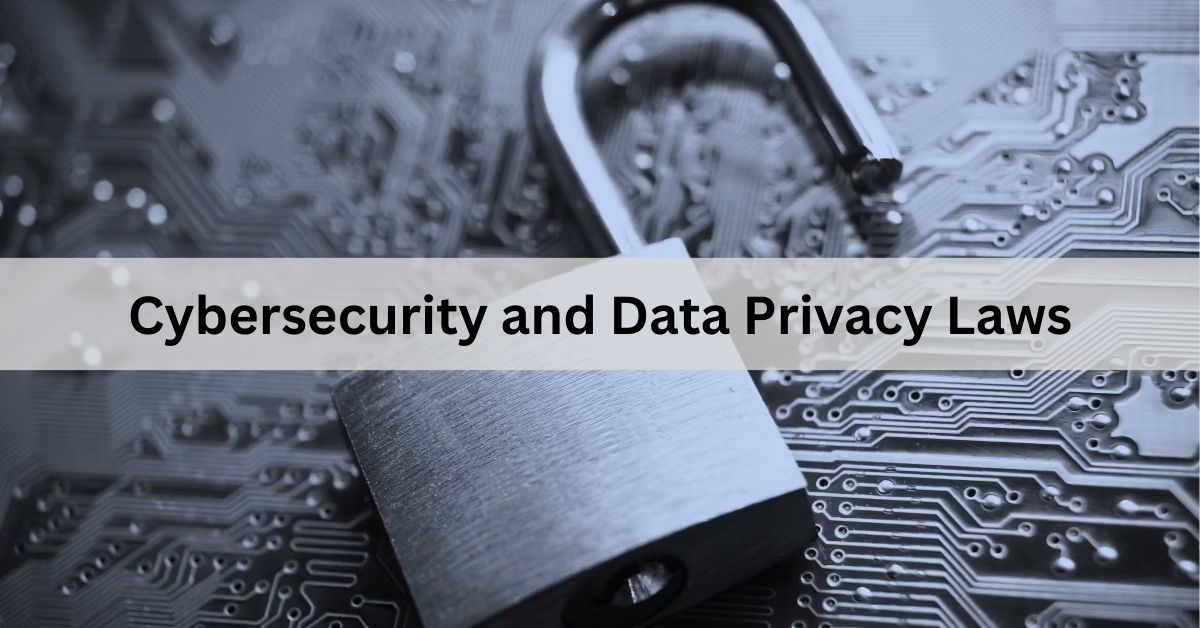
Cybersecurity and Data Privacy Laws – Safeguarding Information in the Digital Age!
Introduction to Cybersecurity and Data Privacy Laws
In an increasingly digital world, cybersecurity and data privacy have become paramount concerns for individuals, businesses, and governments alike. Cybersecurity refers to the protection of computer systems and networks from cyber threats, while data privacy laws regulate the collection, use, and dissemination of personal information. This article explores the importance of cybersecurity, key data privacy laws, their impact on businesses and individuals, compliance requirements, and future trends in data protection.
The Importance of Cybersecurity
Protecting Against Cyber Threats
Cyber threats such as malware, phishing attacks, and data breaches pose significant risks to organizations and individuals. Effective cybersecurity measures safeguard sensitive data, financial information, and intellectual property from unauthorized access and exploitation.
Ensuring Business Continuity
Maintaining robust cybersecurity practices ensures business continuity by preventing disruptions due to cyber incidents. Organizations that prioritize cybersecurity can mitigate financial losses, reputational damage, and legal liabilities associated with data breaches.
Building Trust and Confidence
Strong cybersecurity measures build trust and confidence among customers, stakeholders, and partners. Demonstrating a commitment to protecting sensitive information enhances reputation and fosters long-term relationships based on transparency and security.
Key Data Privacy Laws
General Data Protection Regulation (GDPR)
Enforced by the European Union (EU), GDPR sets guidelines for the collection, processing, and storage of personal data of individuals within the EU. It aims to give individuals control over their personal data and requires organizations to implement stringent data protection measures.
California Consumer Privacy Act (CCPA)
CCPA grants California residents specific rights regarding their personal information, including the right to access, delete, and opt-out of the sale of their data. It imposes obligations on businesses handling consumer data, enhancing transparency and accountability.
Health Insurance Portability and Accountability Act (HIPAA)
HIPAA establishes standards for protecting sensitive patient health information (PHI) held by healthcare providers, health plans, and healthcare clearinghouses. Compliance with HIPAA safeguards PHI from unauthorized access and ensures patient confidentiality.
Impact on Businesses and Individuals
Compliance Requirements
Businesses must comply with data privacy laws by implementing data protection policies, conducting risk assessments, and obtaining consent for data processing activities. Non-compliance may result in severe penalties, fines, and legal repercussions.
Enhanced Data Protection
Data privacy laws empower individuals to control how their personal information is collected and used. Businesses must adopt transparent data practices, secure data storage, and respond promptly to data subject requests to uphold consumer rights.
Global Influence
Data privacy regulations like GDPR have global implications, influencing data handling practices beyond their jurisdiction. Businesses operating internationally must navigate varying legal requirements and adapt their data management strategies accordingly.
Future Trends in Data Protection
Stricter Regulations and Enforcement
Anticipated updates to existing data privacy laws and introduction of new regulations may impose stricter compliance requirements and penalties for data breaches. Governments worldwide are prioritizing data protection to address evolving cyber threats.
Emphasis on Cybersecurity Education
Promoting cybersecurity awareness and education is crucial for enhancing digital literacy and fostering a cyber-resilient culture. Training programs and initiatives aim to empower individuals and organizations to mitigate cyber risks proactively.
Technological Advancements
Innovations in cybersecurity technologies, such as artificial intelligence (AI) and blockchain, offer enhanced threat detection, incident response, and data encryption capabilities. Integrating these technologies strengthens defense mechanisms against sophisticated cyber attacks.
Conclusion
Cybersecurity and data privacy laws play a pivotal role in safeguarding sensitive information and upholding individual rights in the digital era. Businesses must prioritize cybersecurity measures and adhere to data privacy regulations to mitigate risks and maintain trust with stakeholders. As cyber threats evolve, ongoing compliance efforts and investment in robust cybersecurity strategies are essential for protecting data and preserving organizational resilience.
You May Also Like

Merge the Layers Crunk – A Comprehensive Guide
August 16, 2024
Discovering www .nothing2hide .net: Embracing Transparency in the Digital Age
August 6, 2024
